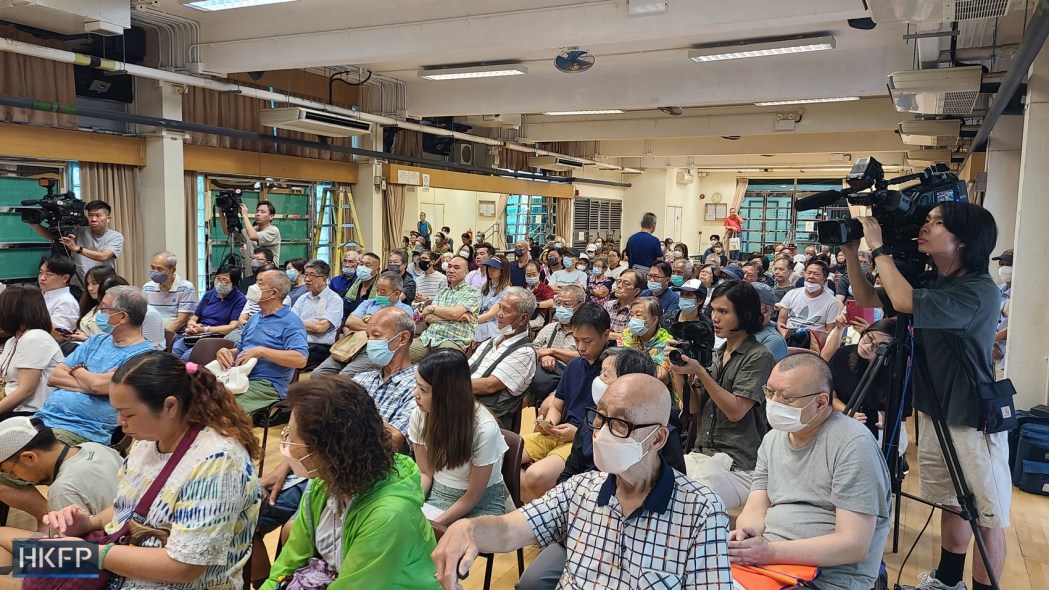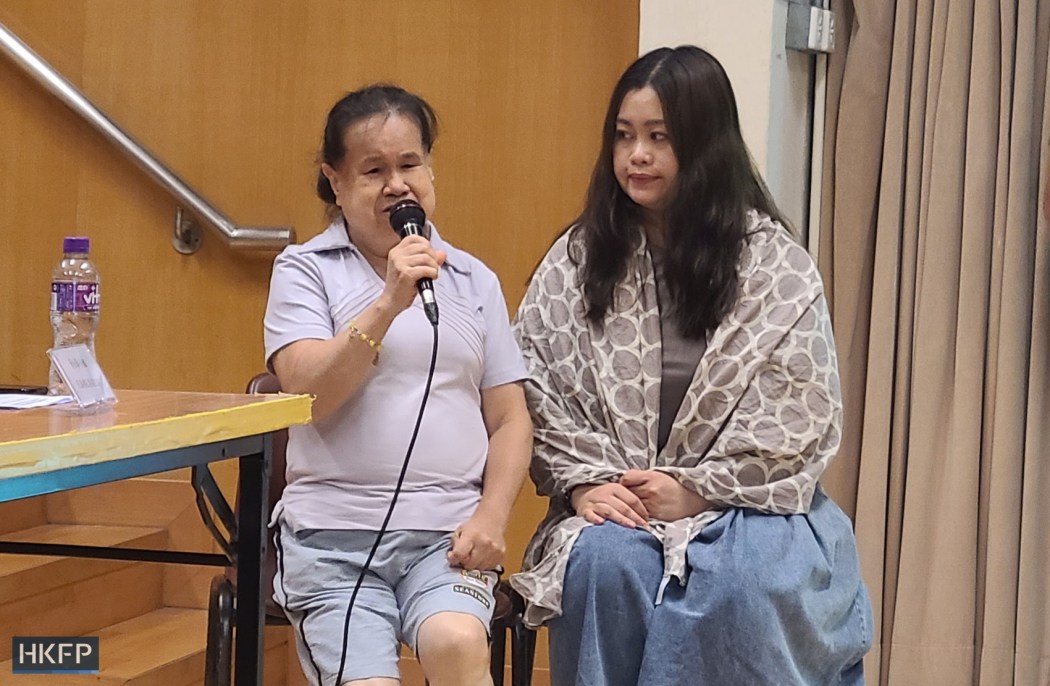Residents of Tai Hang Sai Estate in Shek Kip Mei, Hong Kong’s only privately owned low-rental housing estate, have criticised their landlord and the government for not properly relocating them while the complex undergoes redevelopment.

Built in 1965, the estate is owned by the Hong Kong Settlers Housing Corporation Limited (HKSHCL). According to the Policy Address in 2021, Tai Hang Sai Estate’s redevelopment by HKSHCL and statutory body the Urban Renewal Authority was approved by the Executive Council.
The project aimed to provide over 3,300 units, more than double the existing number, including 1,300 units to rehouse existing tenants and 2,000 units for Hongkongers to buy their first flats at a discounted price.
According to the Policy Address, approval was granted on the “condition” that “the HKSHCL will provide proper rehousing arrangements for existing tenants.”
However, in a Tuesday press conference, more than 100 residents of Tai Hang Sai Estate expressed their discontent towards the landlord and the government, saying that their relocation had not been properly handled.

The residents faced two plans of compensation suggested by the HKSHCL. The first was to receive monthly subsidies from the company to cover private rental costs. For example, a one-person household could receive HK$9,000 monthly for five years, the expected time for redevelopment. After the redevelopment, residents who were eligible could move back to the estate.
Another plan was to receive an one-off compensation, which for a one-person household would be HK$675,000. Each household was required to decide by Wednesday which compensation plan they would prefer.
However, the residents said they were not satisfied with the plans, saying in a Chinese-language press release issued on Tuesday that: “[The compensation plans] cannot properly relocate the residents.”
Hard for elderly to find rental homes
Wong Yu-wa, one of the residents’ representatives, said that 80 per cent of the residents were more than 70 years old.

“If you want a group of people who have already retired to rent units, how can they prove to the landlord or the estate agent that they can afford to rent it? [They] don’t have proof of income, nor they have a box of gold,” Jay Li, the District Councillor assisting the residents, said in Cantonese.
Also speaking in Cantonese, Tse Ka-bo, a visually impaired resident who had lived in the estate for about 40 years, said: “You don’t provide me with a unit, I can’t rent a unit. I don’t know what to do.”

Wong said that as the project was facilitated by the government, it had the responsibility to help relocate the residents.
The concern group urged the government to provide them with public housing units and assist their relocation.
Winnie Ho, the secretary for housing said in a Facebook post written in Chinese on July 16 that: “There are stringent mechanisms in place to ensure fairness in the application and waiting process for public housing. Unnecessary use of public rental housing (PRH) resources to rehouse residents of Tai Hang Sai Estate would be unfair to those on the waiting list for PRH.”
Support HKFP | Policies & Ethics | Error/typo? | Contact Us | Newsletter | Transparency & Annual Report | Apps
Help safeguard press freedom & keep HKFP free for all readers by supporting our team

LATEST FROM HKFP
HKFP has an impartial stance, transparent funding, and balanced coverage guided by an Ethics Code and Corrections Policy.
Support press freedom & help us surpass 1,000 monthly Patrons: 100% independent, governed by an ethics code & not-for-profit.










